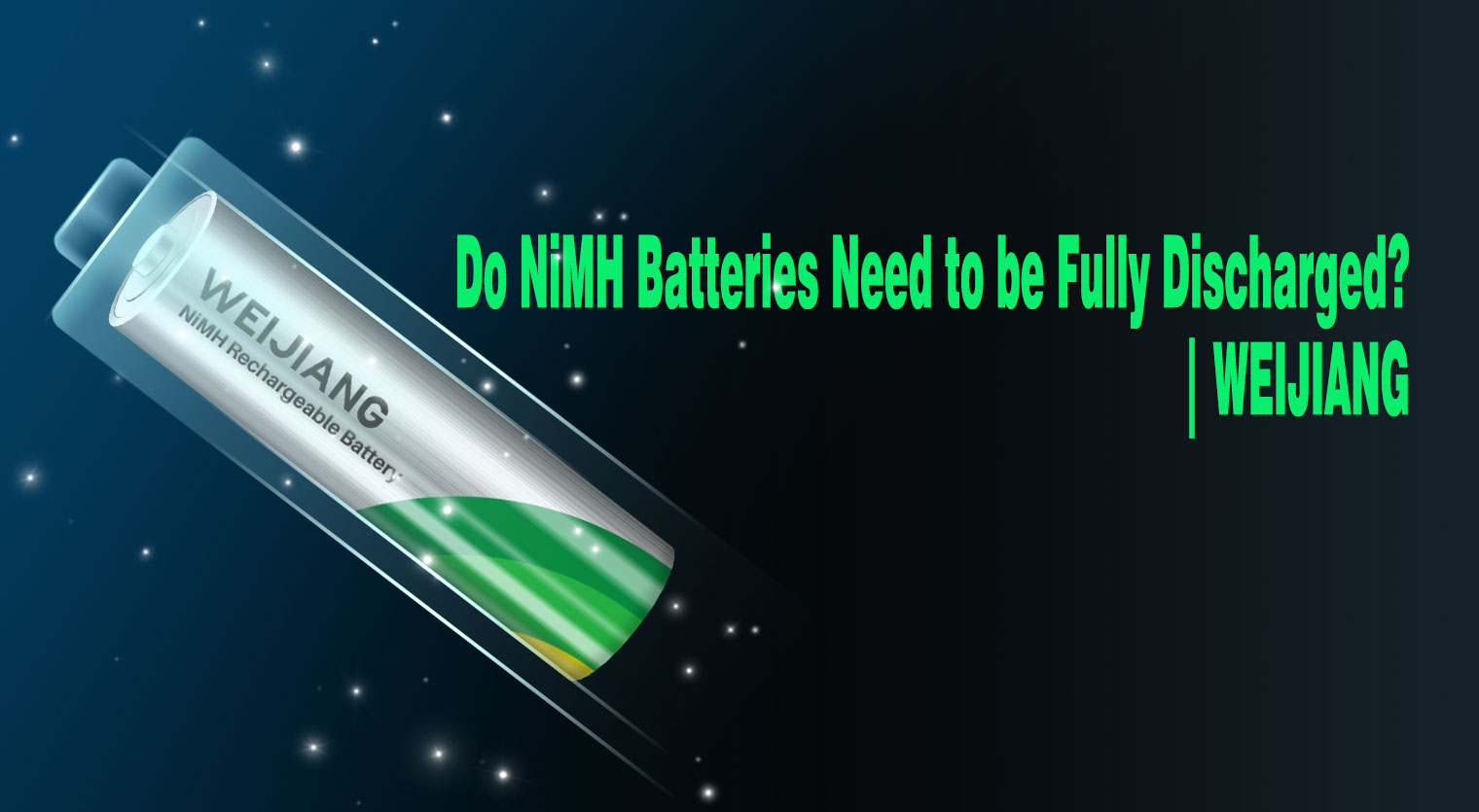Nickel-Metal Hydride (NiMH) batteries have become popular due to their rechargeable nature and widespread use in various electronic devices. However, there are several misconceptions surrounding the charging and discharging practices of NiMH batteries. One common question that arises is whether NiMH batteries need to be fully discharged before recharging. In this article, we will debunk this myth and provide clarity on the optimal charging and discharging practices for NiMH batteries.

Understanding NiMH Battery Characteristics
To comprehend the charging and discharging requirements of NiMH batteries, it is crucial to understand their characteristics. NiMH batteries are known for their memory effect, a phenomenon where the battery "remembers" a shorter capacity if it is repeatedly charged after being partially discharged. However, modern NiMH batteries have significantly reduced memory effect compared to older battery technologies, such as Nickel-Cadmium (NiCd) batteries.
Memory Effect and NiMH Batteries
Contrary to popular belief, memory effect is not a significant concern for NiMH batteries. The memory effect arises when a battery is repeatedly charged after being partially discharged, leading to a reduced overall capacity. However, NiMH batteries exhibit minimal memory effect, and it is not necessary to fully discharge them before recharging.
Optimal Charging Practices for NiMH Batteries
NiMH batteries have specific charging requirements that differ from other battery types. Here are some optimal charging practices to maximize the performance and lifespan of NiMH batteries:
a. Partial Discharge: Unlike older battery technologies, NiMH batteries do not need to be fully discharged before recharging. In fact, it is better to avoid deep discharges, as they can lead to a shorter lifespan. Instead, it is recommended to recharge NiMH batteries when they reach approximately 30-50% capacity.
b. Avoid Overcharging: Overcharging NiMH batteries can lead to heat buildup, reduced capacity, and even safety risks. It is important to follow the manufacturer's recommendations for charging time and avoid leaving the battery connected to the charger for extended periods once it is fully charged.
c. Use a Compatible Charger: NiMH batteries require specific chargers designed for their chemistry. It is advisable to use a charger specifically designed for NiMH batteries to ensure proper charging and avoid potential damage.
Discharging NiMH Batteries
While NiMH batteries do not require full discharge before recharging, occasional complete discharges can be beneficial to maintain their overall capacity. This process is known as "conditioning" and helps recalibrate the battery's internal circuits. However, it is not necessary to perform conditioning frequently. Instead, aim to fully discharge the battery once every few months or whenever you notice a significant reduction in performance.
Other Tips for NiMH Battery Care
To optimize the performance and lifespan of NiMH batteries, consider the following tips:
a. Storage: If you're not using NiMH batteries for an extended period, store them in a cool, dry place. Avoid extreme temperatures and humidity.
b. Avoid Heat: NiMH batteries are sensitive to heat. Excessive heat can cause internal damage and reduce their performance. Keep batteries away from direct sunlight and heat sources.
c. Recycling: When NiMH batteries reach the end of their life cycle, recycle them responsibly. Many battery recycling programs are available to minimize environmental impact
Conclusion
Contrary to popular belief, NiMH batteries do not require full discharge before recharging. The memory effect, which was a concern with older battery technologies, is minimal in NiMH batteries. To maximize the performance and lifespan of NiMH batteries, it is advisable to recharge them when they reach approximately 30-50% capacity and avoid overcharging. While occasional complete discharges can be beneficial for conditioning, it is not necessary to perform them frequently. By following these optimal charging practices and taking proper care of NiMH batteries, you can ensure their longevity and reliable performance for your electronic devices.
Post time: Dec-27-2023





